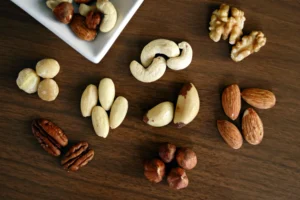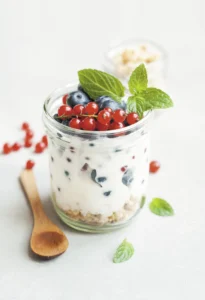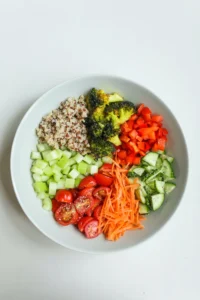Generated by Contentify AI
- Introduction
- Benefits of Hydration
- Understanding Dehydration
- Hydration Guidelines for Infants
- Hydration Tips for Toddlers and Children
- Hydration for Teens and Young Adults
- Hydration Recommendations for Adults
- Hydration Tips for Senior Citizens
- Hydration Strategies for Athletes
- Conclusion

Introduction
Hydration is an essential part of maintaining good physical and mental health, and it’s important to stay hydrated regardless of age. From infants to seniors, everyone needs to make sure they’re drinking enough fluids on a regular basis. Here, we’ll take a look at some helpful hydration tips for all ages.
Infants and toddlers need to stay hydrated just like anyone else, but since they can’t easily communicate their thirst, it’s important for parents to take extra care. Start by introducing a cup of water during mealtimes and make sure to offer sips regularly throughout the day. Also, since breastmilk and formula are composed mainly of water, giving your little one those instead of juice or soda can help make sure they’re getting enough fluids.
For school-aged children, it’s important to pack a reusable water bottle in their lunch so they can stay hydrated during the day. This can also help reduce their consumption of sugary drinks like soda and juice. Encourage your children to take regular water breaks throughout the day and to drink a few more glasses than they think they need.
As adults, it can be difficult to remember to stay hydrated. To keep track, experts recommend setting reminders on your phone or computer to drink water throughout the day. If it’s too hard to remember to drink water at regular intervals, try setting a goal of drinking a certain number of glasses per day. You can also try adding some flavor to your water by using fresh fruits, herbs, or vegetables.
For seniors, it’s especially important to stay hydrated. Older adults may feel less thirsty than they did when they were younger, so it’s vital to make sure they’re still drinking enough water. To encourage hydration, make sure your senior family members have easy access to water and that their glasses are always full. Low-sugar sports drinks or drinks with electrolytes can also be helpful for seniors.
Having a good hydration plan is essential for all ages, and by following these tips, you can help make sure your whole family stays properly hydrated. Remember, drinking enough water can help keep your body healthy and your mind sharp – so make sure to stay hydrated!
Benefits of Hydration
When it comes to hydration, everyone from athletes to office-goers to young children can benefit from learning how to stay properly hydrated. Whether you’re looking to improve your energy levels, performance, and cognitive function, or just want to stay healthy and prevent dehydration, here are a few tips to help you stay hydrated.
First and foremost, it’s important to understand the importance of hydration and why it matters. Without adequate hydration, your body is unable to function properly. The more you know about the benefits of hydration, the easier it will be to make hydration a priority.
So what are the benefits of hydration? One of the biggest benefits of drinking enough fluids is that it helps keep your cells healthy by removing toxins and waste from the body. Proper hydration can also help keep your digestive system functioning and prevent constipation. Staying adequately hydrated can also help improve cognitive function, enabling you to think more clearly and improve your focus and concentration. For athletes, staying hydrated can improve performance and help prevent fatigue.
Hydration also helps maintain a healthy body weight, as it can help reduce hunger between meals and can help keep you from overeating. Finally, it’s important to stay hydrated for overall health, as proper hydration can help to keep your skin healthy and fight off illnesses.
These are just a few of the many benefits of staying hydrated, so it’s important to make it a priority to drink enough fluids throughout the day. It can be helpful to set reminders for yourself or try to drink a glass of water between meals or when you’re thirsty. For athletes and those who are active, try to drink 8-10 glasses of water per day, and if you’re feeling extra thirsty, look for drinks with electrolytes that can help replenish your body.
Whether you’re an athlete, student, parent, or office-goer, make sure you’re taking the time to prioritize hydration. Your body and mind will thank you!
Understanding Dehydration
When it comes to staying healthy, hydration is key. Dehydration occurs when your body loses more fluid than you take in. It is a common condition that can affect people of all ages. While dehydration is often associated with exercise, it can happen to anyone, regardless of age or activity level.
The symptoms of dehydration can range from mild to severe. Mild dehydration may cause headaches, lightheadedness, dry skin, and a reduced amount of urine. Severe dehydration can cause confusion, extreme thirst, dizziness, fainting, and a rapid heartbeat.
To prevent dehydration, it is important to drink enough fluids throughout the day. This is especially important during physical activity and on hot days. Water is the best choice for hydration, but other drinks that contain electrolytes such as sports drinks or coconut water can also be beneficial. Avoiding caffeinated and sugary beverages can also help keep your body hydrated.
It is also important to keep an eye on the amount of electrolytes in your body. Electrolytes are minerals that help regulate your body’s fluids and promote hydration. They are found naturally in some foods, but can also be taken in supplement form.
Dehydration is a serious condition and can have serious health consequences. If you think you may be dehydrated, it is important to seek medical attention immediately. By understanding the symptoms of dehydration and following a few simple hydration tips, you can help keep your body healthy and hydrated.
Hydration Guidelines for Infants
Hydration is essential for babies just as it is for adults. It’s especially important for infants who are growing and developing rapidly. If your little one isn’t getting enough fluids, they are at risk for dehydration, which can lead to serious health issues. Fortunately, there are a few simple guidelines you can follow to ensure your infant stays hydrated.
First, you should always make sure your baby has access to clean drinking water, especially in warm weather. Breast or formula milk should always be the primary source of hydration for babies under one year old. If your infant starts eating solids, you can introduce water as a supplement.
Second, you should always pay attention to how much your baby is drinking. Your pediatrician will be able to tell you how much your infant should be drinking according to their age and size. However, it’s important to note that all infants are different and may require more or less hydration than what is recommended.
Third, watch for signs of dehydration in your baby. These can include a dry mouth, decreased appetite, fewer wet diapers, and dark yellow urine. If you notice any of these signs, it’s important to take your baby to the doctor right away.
Finally, be aware of the environment in which your baby spends most of their time. In hot or humid weather, you may need to give your baby more water than usual. Additionally, if your infant is sick and having diarrhea, they may require extra hydration to replace the fluids they are losing.
Following these simple guidelines will help ensure your infant stays hydrated and healthy. However, if you have any concerns, it’s always best to talk to your pediatrician.
Hydration Tips for Toddlers and Children
When it comes to hydration, toddlers and children have special needs. That’s why it’s important to make sure they’re getting enough fluid to stay healthy. Here are some tips to help keep them properly hydrated.
1. Monitor how much they drink. It’s important to make sure they’re taking in enough fluids. A good rule of thumb for children under the age of 5 is that they should be drinking about 4-8 cups of fluids a day. This number may vary depending on their size and activity level.
2. Encourage them to drink fluids. Make sure they have access to fluids throughout the day and that they’re drinking them. Offer them a variety of fluids, such as water, milk, or juice, and make drinking fluids fun by letting them pick out their own cups or using special straws.
3. Provide healthy snacks. Many toddlers and children are picky eaters, so it’s important to offer them snacks that are both nutritious and hydrating. Fruits and vegetables, such as apples, oranges, and cucumbers, contain high amounts of water.
4. Teach them good habits. Make sure your children understand the importance of staying hydrated. Explain to them that drinking water helps them stay healthy and strong.
By following these tips, you can help your children stay properly hydrated and keep them healthy. Remember, hydration is important for all ages, so make sure you’re drinking enough fluids too!
Hydration for Teens and Young Adults
It’s no secret that teens and young adults need to stay hydrated. But, with their busy schedules and active lifestyles, it can be difficult to make sure they’re getting enough fluids. That’s why it’s important to provide teens and young adults with the right hydration advice, so they can stay healthy and energized.
The best way for teens and young adults to stay hydrated is to drink plenty of water. Water helps to replenish fluids lost through sweat and other activities, and it’s also a great source of essential minerals and vitamins. Additionally, it’s important to listen to your body and drink when thirsty. When it comes to hydration, there’s no one-size-fits-all approach, as everyone’s needs are different.
In addition to water, teens and young adults can also benefit from electrolyte drinks. These drinks help to replenish electrolytes lost through sweat, and can help to prevent dehydration and fatigue. For those who are active, it’s also a good idea to drink a sports drink after a workout, as it helps to replenish electrolytes and provide additional energy.
Finally, it’s important to stay informed about the signs of dehydration. These include fatigue, dizziness, and headaches. If you’re experiencing any of these symptoms, it’s important to drink fluids immediately and rest until the symptoms subside.
When it comes to hydration, teens and young adults need to be mindful of their fluid intake. Drinking plenty of water and electrolyte drinks can help to keep them feeling energized and healthy. Additionally, staying informed about the signs of dehydration can help to ensure that teens and young adults stay hydrated and active.
Hydration Recommendations for Adults
When it comes to staying hydrated, adults have their own unique set of considerations. While the amount of water you should drink daily may vary depending on your activity level and other factors, the general rule of thumb is to drink between 8 and 12 eight-ounce glasses of water a day.
However, if you’re an active adult, this amount may be closer to 15-16 glasses per day. It’s important to note that this recommendation does not include fluids from other sources, such as juice, tea, or coffee. For optimal hydration, make sure to include these types of drinks in your daily fluid intake.
It’s also important to note that hydration is not just about drinking water. Eating foods with high water content, such as fruits and vegetables, can also help to keep you hydrated. In addition, try to limit your intake of drinks that contain caffeine or alcohol—both of which can dehydrate you.
Finally, make sure to drink water throughout the day, as opposed to chugging a lot of it at once. Sipping on water or other fluids throughout the day will help to ensure that your body has adequate hydration.
By following these simple hydration tips for adults, you can help to ensure that your body gets the fluids it needs to stay healthy and functioning properly. So, don’t forget to drink up!
Hydration Tips for Senior Citizens
As people age, it’s important to stay hydrated to keep your body healthy. Senior citizens in particular need to focus on hydration because their bodies are more prone to dehydration. With that in mind, here are some hydration tips specifically for senior citizens.
First and foremost, it’s important to be aware of your hydration levels. A good way to do that is to check your urine color. If it’s bright yellow, you’re likely dehydrated and need to drink more water. Another good way to keep track of your hydration levels is to weigh yourself and log it in a journal. Your goal should be to maintain a consistent weight, and if you notice any sudden or drastic changes, you may need to adjust your water intake.
In addition to making sure you’re drinking enough water, you should also be mindful of what type of fluids you’re consuming. While water is the best choice for hydration, sometimes plain water can be boring. If that’s the case, try adding some flavor to your water with some fruit or herbs. You can also try drinking electrolyte-rich drinks, such as Gatorade or coconut water.
Lastly, you can boost your hydration levels by consuming more fruits and vegetables. Fruits and vegetables contain a good amount of water, which can help keep you hydrated.
Remember to always stay hydrated and if you have any questions or concerns, make sure to consult with your doctor. Staying hydrated is an essential part of staying healthy, and these tips should help you reach your hydration goals.
Hydration Strategies for Athletes
Hydration is an essential part of staying healthy and fit, especially for athletes. It’s important to stay hydrated before, during, and after any physical activity or exercise. But with all the different types of beverages and sports drinks on the market, it can be hard to know what’s the best choice.
Pre-workout hydration is key. To avoid dehydration, make sure to drink plenty of water at least two hours before playing sports. Too much water at once can also cause cramps, so be sure to drink small amounts throughout the day.
During workouts, sports drinks can help replenish electrolytes. Electrolytes are minerals such as sodium, potassium, and magnesium that help regulate fluid balance in the body. Sports drinks are especially beneficial for long workouts, especially in hot weather.
Post-workout hydration is also important. Drink plenty of water to help replenish lost fluids. A glass of chocolate milk is also a great source of protein and carbs for muscle recovery.
By following these simple hydration strategies for athletes, you can make sure you are getting the most out of your workouts. Staying hydrated will help you perform at your best and stay safe during physical activity.
Conclusion
Hydration is an essential part of a healthy lifestyle for everyone, regardless of age. By following these tips, you can ensure that you’re getting enough fluids each day to remain healthy and active. Drink plenty of water throughout the day, and keep an eye on your electrolyte intake if you’re engaging in physical activity. Don’t forget to stay properly hydrated during the hotter months, and consider carrying a reusable water bottle with you to stay on track with your water intake goals. Additionally, be aware of signs of dehydration and what to do if you find yourself in a situation where you need to quickly re-hydrate. With these easy tips, you can make sure your body is functioning at peak performance no matter what age you are.






